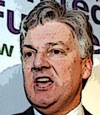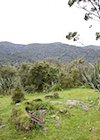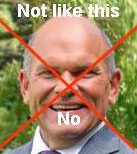 Peter Dunne has been appointed chairman of the select committee being established to review climate policy, the Herald reports. Dunne, in an interview with Carbon News, indicated that he saw no reason to reconsider the science:
Peter Dunne has been appointed chairman of the select committee being established to review climate policy, the Herald reports. Dunne, in an interview with Carbon News, indicated that he saw no reason to reconsider the science:
“The science is pretty clearly established,†Dunne said. “It’s somewhat ludicrous and arrogant to expect a New Zealand parliamentary committee to review the science which the IPCC, Stern (UK economist Lord Stern) and every notable committee in the world has adjudicated on.â€
Today’s Parliamentary order paper lists the membership of the committee and the terms of reference [PDF]. Apart from Dunne, the 11 member committee consists of Craig Foss, Nicky Wagner, Dr Paul Hutchison, Hekia Parata, Rodney Hide, David Parker, Moana Mackey, Charles Chauvel, Jeanette Fitzsimons, and one member of the MÄori Party. The full terms of reference are unchanged from ACT’s draft, with the exception of the science review — which has been dropped — and the terms set no time limit for the committee’s deliberations — though there have been indications that the report is expected by March.
Parker, Chauvel and Fitzsimons know this stuff inside out. It remains to be seen how the others perform. Nicky Wagner held an environment position under Don Brash, and flirted with scepticism at that time, but is now (she told me last year) happy to accept we need to act. It will be interesting to see how Rodney takes to being chaired by Dunne. Reaction from Don’t Be A Rodney here, while No Right Turn is resolutely sceptical, in the true sense of the word.
[Update 10/12: The order paper linked above omitted one particularly interesting new item in the terms of reference (see Government press release here):
– identify the central/benchmark projections which are being used as the motivation for international agreements to combat climate change; and consider the uncertainties and risks surrounding those projections
Rodney Hide seems hell bent on interpreting this as meaning he can have his crank fest. One hopes the rest of the committee will disagree. Meanwhile, a more rational interpretation of this item could lead to a very interesting discussion about targets – because the way I read it, “uncertainties and risks” could suggest the need for more stringent limits on emissions… 😉 ]
[Title reference]
Like this:
Like Loading...
 Forgive me this riff on impermanence. Last Sunday morning, my little group of middle-aged winos and winemakers (plus a professor or two) left the lodge in Martin’s Bay and crossed a serene Hollyford River on a jetboat. We walked along the edge of the bush on the spit, looking at Maori middens, layering in sand dunes, native plants and the succession from pingao to rimu, pondering the most recent ice age — which carved out the Hollyford valley — and the potential for rising seas to change this wonderful example of coastal ecology. Eventually we arrived at the site of the Mackenzie homestead – built in the 1870s by hardy settlers determined to make their lives in this wet and wild corner of what was then a new land to Europeans. All that remains is the stone fireplace, overgrown with grass, the vague outline of the walls, and some imported trees — the gums are doing very well. I pondered the lives of the settlers in the Hollyford and the scratches they left on the landscape, while New Zealand and the world grasped at bigger issues…
Forgive me this riff on impermanence. Last Sunday morning, my little group of middle-aged winos and winemakers (plus a professor or two) left the lodge in Martin’s Bay and crossed a serene Hollyford River on a jetboat. We walked along the edge of the bush on the spit, looking at Maori middens, layering in sand dunes, native plants and the succession from pingao to rimu, pondering the most recent ice age — which carved out the Hollyford valley — and the potential for rising seas to change this wonderful example of coastal ecology. Eventually we arrived at the site of the Mackenzie homestead – built in the 1870s by hardy settlers determined to make their lives in this wet and wild corner of what was then a new land to Europeans. All that remains is the stone fireplace, overgrown with grass, the vague outline of the walls, and some imported trees — the gums are doing very well. I pondered the lives of the settlers in the Hollyford and the scratches they left on the landscape, while New Zealand and the world grasped at bigger issues…
 Peter Dunne has been appointed chairman of the select committee being established to review climate policy, the Herald
Peter Dunne has been appointed chairman of the select committee being established to review climate policy, the Herald 
 As one would expect from a rurally based sector, foresters are a conservative lot. I don’t say that disrespectfully, because societies – for the sake of stability – need a balanced mixture of change-makers and change-resisters. But it did mean that, when in 1989 I started work on Climate Change and forestry, I met with considerable opposition: “what bullshit is this? The climate has ALWAYS changed. Nature is self-balancing.” And so on, you’ve heard it all before.
As one would expect from a rurally based sector, foresters are a conservative lot. I don’t say that disrespectfully, because societies – for the sake of stability – need a balanced mixture of change-makers and change-resisters. But it did mean that, when in 1989 I started work on Climate Change and forestry, I met with considerable opposition: “what bullshit is this? The climate has ALWAYS changed. Nature is self-balancing.” And so on, you’ve heard it all before.